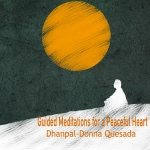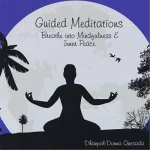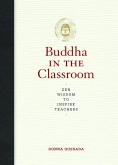We are what we think, The Dhammapada begins. All that we are arises with our thoughts.
Yet, at the same time, a thought is nothing other than a passing wave of the mind, Suzuki Roshi says, in the classic, Zen Mind, Beginner’s Mind. I remember another Zen master likening thoughts to bodily secretions. He was reminding us not to take them seriously. A thought is nothing other than an inconsequential emission, like sweat, which evaporates on its own, or a burp, which is gone as quickly as it arises, without a single trace. It is why, in Zen meditation, we don’t try and stop our thoughts. Like a revolving door, they will come and they will go, of their own accord. Those incessant emissions don’t define us any more than the steam from a boiling cup of tea defines the quality of the tea leaf.
Or do they?
Perhaps thoughts are more like the emissions from an old Chevy…black and heavy, betraying our old, outdated, carburetor engine, and the total lack of smog control. The smoke and soot sullies up everything, and we breathe in all the black pollution. As The Dhammapada suggests, our thoughts give us away, and we can hide our identity no more than a ’57 Chevy can hide its smoke. We think ugly thoughts and we wear them.
The Resolution:
Thoughts are passing waves, but there’s a catch…if we let them pass. They come and they go…if we avoid getting attached to them. And this is where mindfulness starts. With this realization, we can avoid the karma that clings to us, like gum getting stuck to our shoes, every time we fixate on those thoughts.
So both ideas are true. They can live together, side by side, without conflict. Like a light wave, there’s no necessary contradiction with regard the different viewpoints: it’s a wave or a particle, depending on which way you look at it. Our thoughts are only secretions when we recognize them as such and then let them go—a useful trick, when it comes to what Buddhists would call unskillful thoughts, and what the Yogis would refer to as negative thoughts. The problem surfaces when we habituate. Then we get stuck; then we get in our own way; we prevent ourselves from moving along; we wear it on our faces; we exude it in our demeanor, and it affects every aspect of our relationships, our lives and our worlds.
Seen in this way, our thoughts have tremendous power and define us, if we let them. So we can let them, in a skillful way, or in an unskillful way. That’s where spiritual training comes in. As one of my favorite yogis, Swami Sivananda reminds us, in Thought Power, by raising only thoughts of mercy, love and kindness, we bring happiness upon ourselves and others. Conversely, when we are stewing in hatred, pain is sure to follow. In this way, we use thoughts conscientiously, with deliberate aim.
Similarly, in Kundalini Yoga, we are taught to convert negative thought forms and tendencies, rather than fight against them or wait for them to go away on their own; we use them skillfully to good purpose. For example, we may put the tendency toward anger to good use, by directing that anger toward ourselves for not being more patient, or we may turn our greed into the noble desire to become enlightened.
So, it seems we have two choices, we can let negative thoughts settle on their own, without the validation of judging them, or even naming them. Or, we can convert them. In both cases, we are willfully using our mind rather than the other way around. We are the master and are working with our thoughts in a decisive way.
Whatever you give attention to, thrives—especially habit patterns. Water the grass and it grows. Water the weeds and they grow. Water the thoughts and we become those thoughts.









